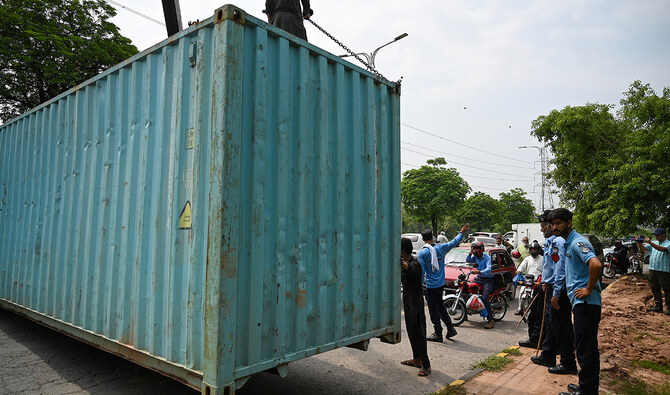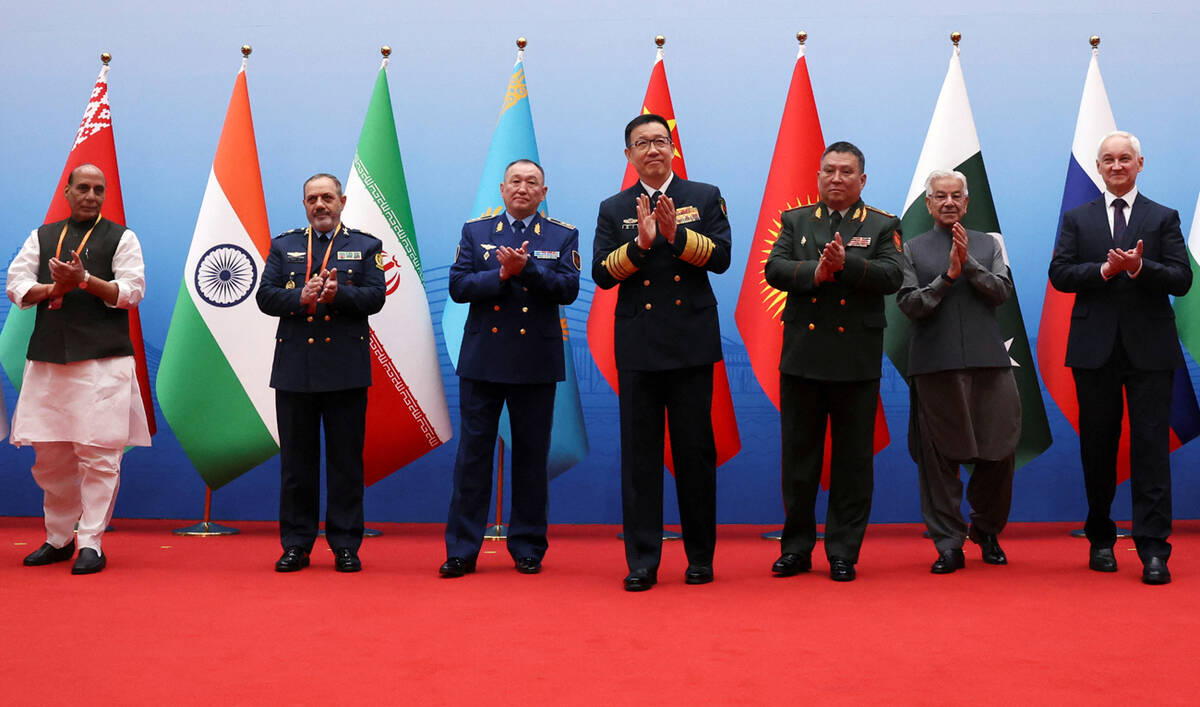ISLAMABAD: Pakistan’s capital remained tense on Thursday with heavy police deployment and entry and exit points to the city sealed as a religious party threatened protests against a Supreme Court verdict in a blasphemy case, igniting fears of fresh clashes with law enforcers.
The administration put up shipping containers to block roads leading toward government buildings in Islamabad as well as on entry and exit points into the city as the Supreme Court heard a plea by the Punjab government asking it to ‘correct’ a verdict in a blasphemy case concerning Mubarak Sani, a member of the minority Ahmadi community, who was given bail by Chief Justice Qazi Faez Isa earlier this year.
Infuriated supporters of religious parties, mainly the Tehreek-e-Labbaik Pakistan (TLP), subsequently held protests nationwide, accusing Isa of committing blasphemy and calling for a review of his ruling. The party and other religious groups have also announced a strike today, Thursday, pending the decision of the SC hearing on the Punjab government’s plea.
On Monday this week, angry protesters, under the banner of the religious organization, the Aalmi Majlis Tahaffuz-i-Nabuwat, clashed with police after barging into Islamabad’s Red Zone, home to sensitive government buildings such as the Presidency, Prime Minister House, Parliament and the Supreme Court, as they tried to storm the building of the top court.
Former prime minister Imran Khan’s Pakistan Tehreek-e-Insaf (PTI) party had also planned a rally in Islamabad today, Thursday, which was postponed after the Islamabad administration revoked permission, citing security threats and a lack of resources with security agencies. The PTI has announced the rally would now be held on Sept. 8.
“DIG Security Division Islamabad Jawad Tariq pays a visit to the entry points of the Red Zone,” Islamabad Police wrote on social media platform X on Thursday morning as security measures were beefed up through the city.
“He briefed on-duty personnel about performing their duties in an alert manner given the current circumstances.”
Abdul Ghafoor, a senior member of the TLP, told Arab News the party had not called off its protest against the Supreme Court planed for Thursday and would closely follow the day’s court proceedings.
“We will wait for our members who are inside the court and after their report about today’s proceeding, the course of action will be announced after the meeting of the central leadership,” Ghafoor said.
Blasphemy is a sensitive topic in Muslim-majority, conservative Pakistan where mere accusations of the offense have resulted in public lynchings and mob justice. Pakistanis are particularly sensitive about the Ahmadis, whom they consider heretics.
Human rights groups say Pakistan’s harsh blasphemy laws are often misused to settle personal scores.
Pakistan’s government last month warned the TLP, which had led the February protests against the chief justice, against spreading hate on the basis of religion after a TLP leader announced a monetary reward for anyone who would kill the top judge.

















